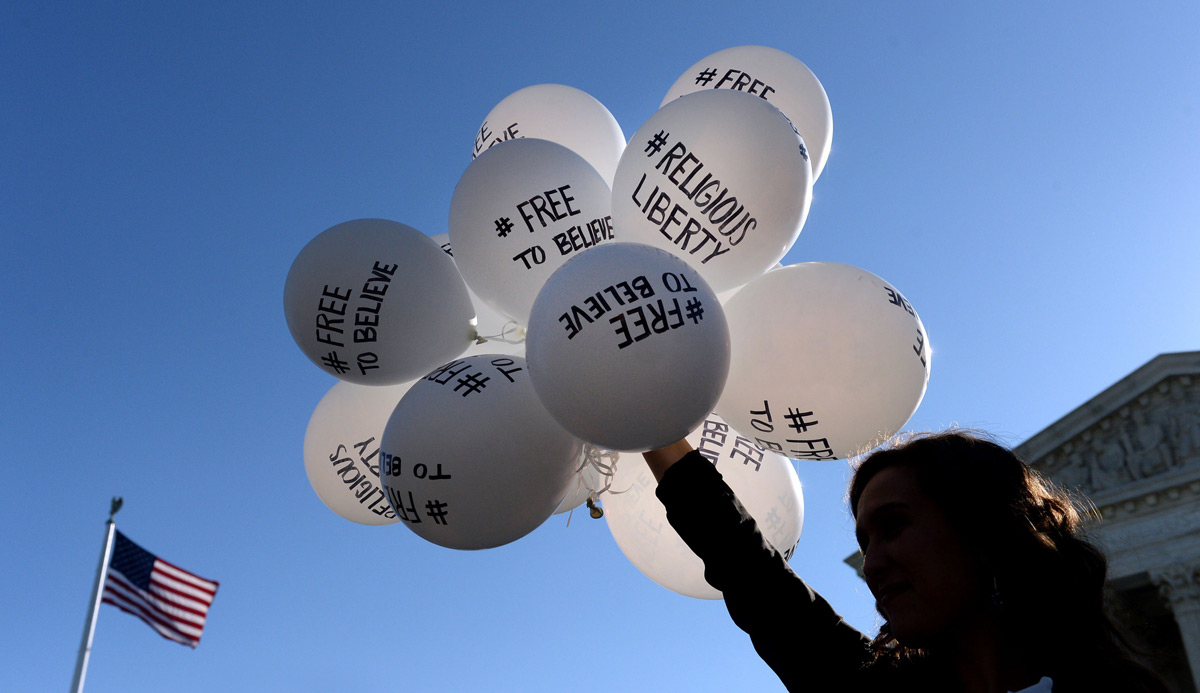

Religious Freedom: Navigating Beliefs in America. What's the Balance?
The balance of religious freedom in America is a complex and often debated topic. On one hand, the United States has a long history of promoting and protecting religious freedom as a fundamental right. The First Amendment of the U.S. Constitution guarantees the free exercise of religion, prohibiting the government from establishing a religion or interfering with the practice of any faith. This has allowed for a diverse religious landscape in America, where individuals are free to practice their beliefs without fear of persecution or discrimination.
However, finding the right balance between religious freedom and other societal interests can be challenging. There are instances where religious beliefs clash with laws or policies aimed at protecting the rights of others or promoting social equality. For example, in recent years, there have been debates around issues such as LGBTQ+ rights, reproductive rights, and healthcare access, where religious beliefs have been used to justify discrimination or limit certain services.
One notable case is the Masterpiece Cakeshop v. Colorado Civil Rights Commission in 2018. In this case, a baker refused to make a wedding cake for a same-sex couple, citing religious objections. The Supreme Court ruled in favor of the baker, but the decision was based on specific circumstances and did not provide a clear-cut resolution. It highlighted the challenge of balancing religious freedom with anti-discrimination laws, leaving room for ongoing debates and potential conflicts.
Another example is the Affordable Care Act's contraceptive mandate, which required employers to provide health insurance coverage for contraceptives. Some religious organizations and employers objected to this mandate, arguing that it violated their religious beliefs. The Supreme Court later ruled in favor of religious exemptions for certain closely-held corporations in the Burwell v. Hobby Lobby case. This decision raised concerns about the potential impact on employees' access to healthcare services.
To navigate these challenges, courts often employ a balancing test, weighing the government's compelling interest against the burden imposed on religious exercise. The government must demonstrate a compelling interest in restricting religious freedom and show that the restriction is the least restrictive means of achieving that interest. This approach aims to strike a balance between protecting individual religious beliefs and safeguarding the rights and well-being of others.
It is important to note that the interpretation and application of religious freedom can vary depending on individual perspectives and cultural contexts. Different religious groups may have different beliefs and practices, and finding a balance that respects all viewpoints can be a delicate task. The ongoing debates around issues like LGBTQ+ rights, religious exemptions, and healthcare access highlight the ongoing need for dialogue, understanding, and compromise.
In conclusion, the balance of religious freedom in America requires careful consideration of competing interests. While religious freedom is a fundamental right, it must be balanced with other societal interests, such as anti-discrimination laws and the rights of marginalized communities. The courts play a crucial role in navigating these complex issues, but ongoing dialogue and understanding among individuals and communities are also essential to finding a balance that respects diverse beliefs while upholding equal rights for all.
Related Posts
© 2025 Invastor. All Rights Reserved

User Comments